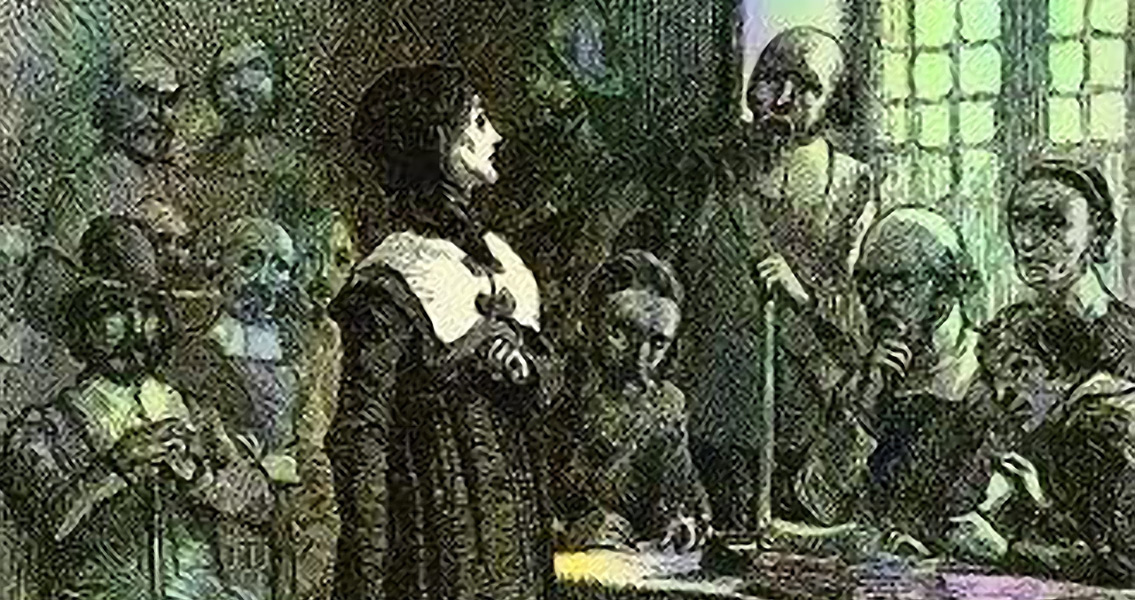<![CDATA[Anne Hutchinson, an English woman and religious leader who would be deemed a heretic during the Antinomian Controversy, arrived in the Massachusetts Bay Colony on 18th September, 1634. The Antinomian Controversy was the first great intellectual crisis in the colony of New England, coming at a time when church was so finely intertwined with state and piety among the population so central, it soon advanced to take on a spiritual and social dimension. The fact that Hutchinson became such a central figure in the campaign provides a unique example of the influence women could sometimes wield in such matters, even in the seventeenth century. Little is known about Hutchinson's life outside her involvement in the Antinomian Controversy, due to a paucity of records. She was born Anne Marbury in Alford, Lincolnhire, England around 1591. She was the daughter of Bridget Dryden and Francis Marbury, a dissenting Anglican clergyman who was eventually silenced by the church. Her father's vocation and controversial beliefs undoubtedly had a profound influence on her. In 1612 she married William Hutchinson, a merchant, and had twelve children with him over the space of twenty years or so. During this period, the Hutchinsons began frequently traveling to St. Botolph's Church to hear the charismatic Puritan preaching of John Cotton. Just like Anne Hutchinson's father, Cotton soon also faced criticism for his controversial religious views and opted to migrate to the Massachusetts Bay colony in 1633. Distraught to have lost the influence of the minister in her life, Hutchinson soon persuaded her husband to move their family across the Atlantic to the Massachusetts Bay Colony as well. Soon after arriving, Hutchinson started organising meetings in her Boston home for women to come and discuss theological issues. In her childhood, Hutchinson had developed a talent for making and using herbal remedies and treatments, a skill set which quickly made her an important member of the colonial community. This in turn allowed her to build a network of women to attend the bi-weekly meetings. Like Cotton, Hutchinson advocated an interpretation of Christian doctrine which challenged legalistic concepts of morality and faith. Coming to be known as Antinomianism, the belief argued for an internal piety of the soul, rather than repeated outward gestures of faith such as building spectacular churches or making frequent donations. By 1637, the growing influence of Hutchinson and Cotton brought them into conflict with the Massachusetts authorities. With her meetings having become increasingly divisive, and her advocacy of her beliefs increasingly confrontational, Hutchinson was convicted for "traducing ministers" and banished from the Massachusetts Bay Colony. In 1638, having repeatedly refused to repent, Hutchinson was excommunicated by the Boston Church and deemed a heretic. Eventually reaching what is now Rhode Island, Hutchinson established a settlement there with some of her followers. In 1642, following the death of her husband, her and her children moved again, this time to an area near present day New York. A year later Hutchinson and all but one of her daughters were killed in an attack by Native Americans. ]]>
Famed Heretic Reaches the New World
